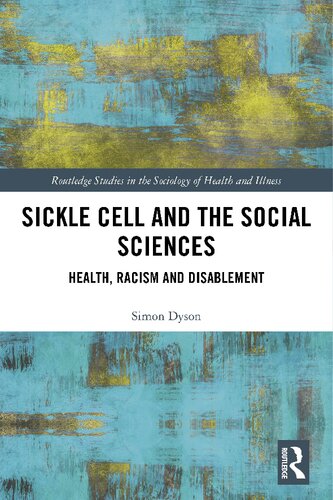

Most ebook files are in PDF format, so you can easily read them using various software such as Foxit Reader or directly on the Google Chrome browser.
Some ebook files are released by publishers in other formats such as .awz, .mobi, .epub, .fb2, etc. You may need to install specific software to read these formats on mobile/PC, such as Calibre.
Please read the tutorial at this link: https://ebookbell.com/faq
We offer FREE conversion to the popular formats you request; however, this may take some time. Therefore, right after payment, please email us, and we will try to provide the service as quickly as possible.
For some exceptional file formats or broken links (if any), please refrain from opening any disputes. Instead, email us first, and we will try to assist within a maximum of 6 hours.
EbookBell Team

5.0
80 reviewsSickle cell disease (SCD) is a severe chronic illness and one of the world’s most common genetic conditions, with 400,000 children born annually with the disorder, mainly in Sub-Saharan Africa, India, Brazil, the Middle East and in diasporic African populations in North America and Europe. Biomedical treatments for SCD are increasingly available to the world’s affluent populations, while such medical care is available only in attenuated forms in Africa, India and to socio-economically disadvantaged groups in North America and Europe.
Often a condition rendered invisible in policy terms because of its problematic association with politically marginalized groups, the social study of sickle cell has been neglected. This illuminating volume explores the challenges and possibilities for developing a social view of sickle cell, and for improving the quality of lives of those living with SCD. Tackling the controversial role of screening and genetics in SCD, the book offers a brief thematic history of approaches to the condition, queries the role of ethnicity and includes a discussion of how the social model of disability can be applied, as well as featuring chapters focusing on athletics, prisons and schools.
Bringing together a wide range of original research conducted in the USA, the UK, Ghana and Nigeria, Sickle Cell and the Social Sciences is anchored in the discipline of sociology, but draws upon a diverse range of fields, including public health, anthropology, social policy and disability studies.